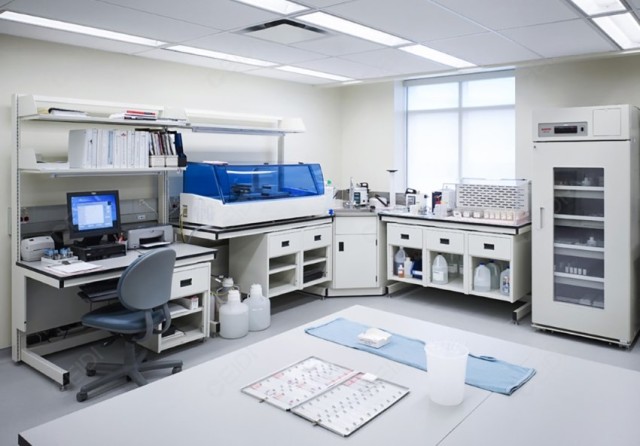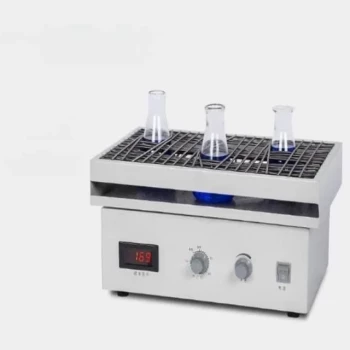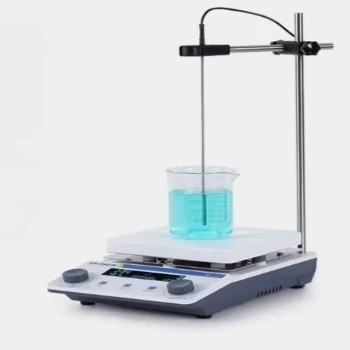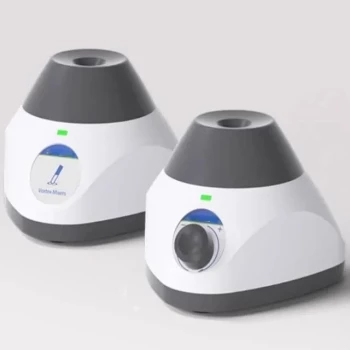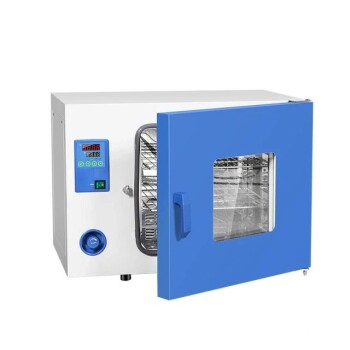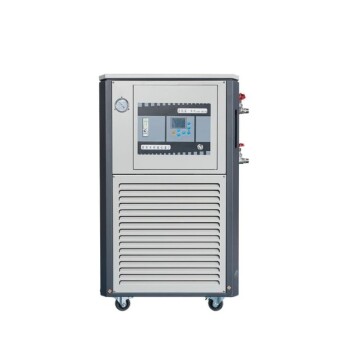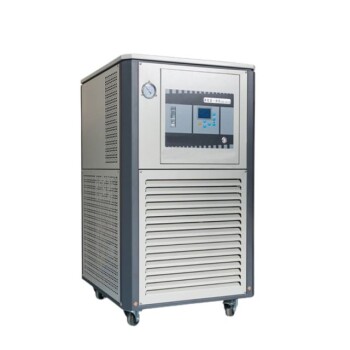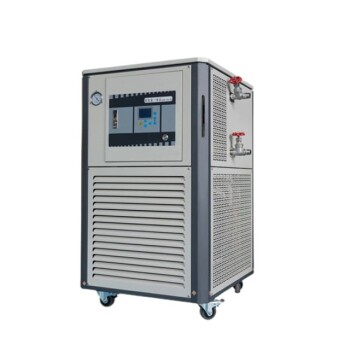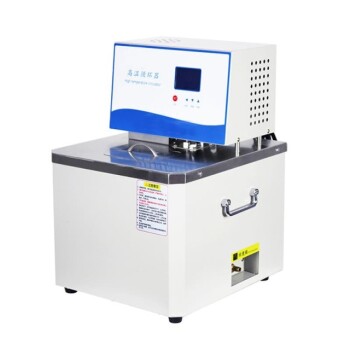Incubadoras com temperatura controlada
Incubadora bioquímica
A incubadora bioquímica está equipada com um sofisticado sistema de controlo de temperatura bidirecional, que permite capacidades de refrigeração e aquecimento. Esta dupla funcionalidade assegura uma regulação precisa da temperatura, o que é crucial para várias aplicações laboratoriais. A caraterística de controlo de temperatura da incubadora permite-lhe manter condições consistentes, tornando-a indispensável para testes de temperatura constante a baixa temperatura, testes de cultura e testes ambientais.

Nos testes de temperatura constante a baixa temperatura, a incubadora bioquímica assegura que as amostras permanecem a uma temperatura estável e pré-determinada, o que é essencial para a recolha e análise de dados exactos. Para testes de cultura, a incubadora proporciona um ambiente ótimo para o crescimento e proliferação de microrganismos, facilitando estudos detalhados sobre o seu comportamento e caraterísticas. Além disso, nos testes ambientais, a incubadora simula várias condições ambientais, ajudando os investigadores a compreender como diferentes factores afectam os processos biológicos.
A versatilidade da incubadora bioquímica é ainda realçada pela sua aplicação numa vasta gama de disciplinas científicas, incluindo microbiologia, bioquímica e ciências ambientais. O seu design robusto e os mecanismos de controlo precisos fazem dela uma ferramenta vital tanto em ambientes de investigação académica como industrial.
Incubadora de moldes
As incubadoras de bolores são dispositivos laboratoriais especializados, concebidos para promover o crescimento de organismos e plantas através do controlo meticuloso das condições ambientais num espaço fechado. Estas incubadoras são essenciais para várias aplicações de investigação biológica e microbiológica, onde o controlo preciso da temperatura e da humidade é crucial.

Para facilitar as condições ideais de crescimento, as incubadoras de bolores estão equipadas com sistemas avançados que permitem o ajuste fino dos níveis de temperatura e humidade. Esta precisão é vital para garantir que as culturas de bolores se desenvolvam num período de tempo relativamente curto, normalmente de 4 a 6 horas. A capacidade de definir e manter estas condições específicas não só acelera o processo de crescimento, como também garante uniformidade e consistência nos resultados experimentais.
Além disso, o ambiente fechado proporcionado pelas incubadoras de moldes ajuda a evitar a contaminação por factores externos, o que é fundamental para manter a integridade dos dados da investigação. Este ambiente controlado é particularmente vantajoso em estudos que envolvem organismos sensíveis ou que requerem um ambiente estéril.
Em resumo, as incubadoras de fungos são ferramentas indispensáveis no laboratório, oferecendo um meio fiável e eficiente para cultivar organismos e plantas em condições controladas com precisão, apoiando assim uma vasta gama de investigações científicas.
Incubadora de dióxido de carbono
A incubadora de dióxido de carbono é um dispositivo avançado de laboratório especificamente concebido para a cultura in vitro de células e tecidos. Reproduz meticulosamente o ambiente natural de crescimento das células/tecidos dentro dos organismos, facilitando assim as condições óptimas para a sua proliferação e estudo.

Esta incubadora especializada mantém uma atmosfera controlada que inclui não só níveis precisos de temperatura e humidade, mas também uma concentração regulada de CO2. Isto é crucial para manter o equilíbrio do pH necessário para a viabilidade e crescimento das células. O dispositivo está equipado com sensores sofisticados e sistemas de controlo que garantem que estes parâmetros permanecem estáveis e dentro do intervalo ideal para o tipo específico de célula ou tecido que está a ser cultivado.
Além disso, a incubadora de dióxido de carbono é frequentemente utilizada em conjunto com outro equipamento de laboratório para criar um sistema abrangente para a investigação biológica. Por exemplo, pode ser integrada com sistemas de alimentação automatizados, tecnologias de imagem e ferramentas de registo de dados para fornecer uma abordagem holística aos estudos de cultura de células. Esta integração não só aumenta a eficiência do processo de investigação, como também garante a precisão e a fiabilidade dos resultados experimentais.
Em resumo, a incubadora de dióxido de carbono destaca-se como uma ferramenta vital no arsenal de equipamento de laboratório, oferecendo uma precisão e um controlo sem paralelo para a cultura in vitro de células e tecidos. A sua capacidade de simular as condições intrincadas de um organismo vivo torna-a indispensável para investigadores em áreas como a biotecnologia, a farmacologia e a medicina regenerativa.
Incubadora eléctrica de temperatura constante
A incubadora eléctrica de temperatura constante é uma pedra angular no domínio da investigação científica e da produção industrial, particularmente em sectores como a medicina e a saúde, a farmácia, a bioquímica e as ciências agrícolas. Este equipamento versátil foi meticulosamente concebido para facilitar a cultura bacteriana, a fermentação e os testes a temperatura constante, garantindo condições ambientais precisas que são essenciais para o sucesso do cultivo e análise de várias entidades biológicas.

No sector médico e da saúde, a incubadora eléctrica de temperatura constante desempenha um papel fundamental no crescimento e manutenção de culturas bacterianas, que são indispensáveis para testes de diagnóstico e desenvolvimento de vacinas. Da mesma forma, na indústria farmacêutica, auxilia nos processos de fermentação necessários para a produção de antibióticos e outros compostos medicinais. Os campos da bioquímica e das ciências agrícolas também beneficiam da sua capacidade de manter temperaturas estáveis, permitindo resultados experimentais consistentes e fiáveis.
A incubadora eléctrica de temperatura constante não é apenas um recipiente passivo para amostras biológicas; é um participante ativo no processo científico, assegurando que as condições no seu interior são perfeitamente adequadas às necessidades dos organismos em estudo. Esta precisão é conseguida através de mecanismos avançados de controlo da temperatura, que conseguem manter um ambiente consistente, independentemente das flutuações externas, aumentando assim a reprodutibilidade e a fiabilidade dos resultados experimentais.
Além disso, a sua aplicação vai além da simples manutenção da temperatura; também suporta uma variedade de necessidades de incubação especializadas, tais como as que envolvem luz, humidade e até ambientes de gás controlado. Essa adaptabilidade torna a incubadora elétrica de temperatura constante uma ferramenta inestimável nos laboratórios modernos, onde a demanda por resultados precisos e consistentes é fundamental.
Incubadoras especializadas
Incubadora de luz
A incubadora de luz é uma peça especializada de equipamento de laboratório concebida para o cultivo e a criação de um conjunto diversificado de microorganismos, incluindo bactérias e bolores. Ao contrário de outras incubadoras que muitas vezes dependem apenas do controlo da temperatura, a incubadora de luz integra o controlo da temperatura e da luz, oferecendo um ambiente mais abrangente para o crescimento microbiano.

O tanque interno de uma incubadora de luz é normalmente construído em plástico de engenharia ou aço inoxidável. Esta escolha de materiais é crucial por várias razões:
-
Plástico de engenharia: Oferece uma excelente resistência química, tornando-o ideal para conter várias culturas microbianas sem o risco de reacções químicas. Também proporciona uma superfície lisa que é fácil de limpar e manter, o que é essencial para evitar a contaminação cruzada entre culturas.
-
Aço inoxidável: Conhecido pela sua durabilidade e resistência à corrosão, o aço inoxidável garante que a incubadora pode suportar os rigores da utilização frequente num ambiente laboratorial. Também facilita a distribuição eficiente do calor, o que é vital para manter temperaturas consistentes dentro da incubadora.
Estes materiais não só garantem a longevidade e funcionalidade da incubadora, como também contribuem para a esterilidade geral e eficiência do processo de cultivo.
Câmara climática artificial
A câmara climática artificial serve como uma ferramenta laboratorial versátil, facilitando uma vasta gama de estudos biológicos e ambientais. As suas principais aplicações incluem germinação e cultivo de plântulas onde proporciona condições controladas que imitam os ambientes naturais de crescimento, aumentando assim a taxa de sucesso da propagação de plantas. Além disso, a câmara é fundamental para cultivo de tecidos e microorganismos oferecendo um ambiente estável e estéril que suporta o crescimento de vários espécimes biológicos.

Para investigadores que estudam insectos e pequenos animais a câmara climática artificial fornece um habitat controlado que pode simular diferentes condições climáticas, ajudando na observação e análise de respostas comportamentais e fisiológicas. Esta capacidade estende-se a análise da água A câmara é utilizada para determinar a Carência Bioquímica de Oxigénio (CBO), um parâmetro crítico na avaliação da qualidade da água.
Para além destas utilizações específicas, a câmara climática artificial é utilizada em ensaios climáticos artificiais de carácter geral onde replica várias condições ambientais para avaliar o desempenho e a durabilidade de materiais, produtos e sistemas em diferentes cenários climáticos. Esta ampla aplicabilidade torna-a um recurso indispensável tanto na investigação académica como nas aplicações industriais.
Câmara de temperatura e humidade constantes
A câmara de teste de temperatura e humidade constantes é uma ferramenta indispensável na ciência e engenharia dos materiais, concebida para simular uma vasta gama de condições ambientais. Esta câmara permite aos investigadores avaliar o desempenho dos materiais sob várias condições de temperatura e humidade, testando assim a sua resistência a condições como o calor, o frio, a secura e a humidade.

Ao submeter os materiais a tensões ambientais controladas, os cientistas podem prever como estes materiais se comportarão em cenários reais, o que é crucial para indústrias que vão desde a automóvel à aeroespacial. Por exemplo, um material que tenha um bom desempenho em condições extremas de calor e humidade no laboratório tem mais probabilidades de manter a sua integridade em climas tropicais ou durante uma exposição prolongada à luz solar direta.
A versatilidade da câmara de temperatura e humidade constantes não se limita apenas ao ensaio de materiais. Também é utilizada na investigação biológica, onde pode simular as condições ambientais necessárias para o crescimento e estudo de microorganismos, plantas e outros espécimes biológicos. Esta capacidade torna-o um ativo valioso em áreas como a agricultura, produtos farmacêuticos e ciências ambientais.
Em resumo, a câmara de teste de temperatura e humidade constantes não é apenas uma peça de equipamento; é uma ferramenta sofisticada que facilita actividades críticas de investigação e desenvolvimento em várias disciplinas científicas.
Incubadora microbiana
A incubadora microbiana é um dispositivo especializado, do tipo caixa, concebido para cultivar um conjunto diversificado de microrganismos, incluindo bactérias, bolores e células vegetais/animais. Esta ferramenta versátil é essencial na investigação biológica para simular as condições óptimas de crescimento exigidas por estes organismos.

Os principais parâmetros ambientais, como a temperatura, a humidade, a luz, os níveis de dióxido de carbono e o pH, são meticulosamente controlados na incubadora. Esta regulação precisa assegura que o ambiente interno imita os habitats naturais dos organismos em estudo, promovendo assim o seu crescimento e reprodução. Por exemplo, as bactérias desenvolvem-se tipicamente em ambientes quentes e húmidos, enquanto os bolores podem necessitar de níveis específicos de humidade e condições de luz para proliferar.
A capacidade da incubadora microbiana para manter um ambiente estável e controlado é crucial para experiências que requerem resultados consistentes. Quer se trate de estudar os efeitos da temperatura no crescimento bacteriano ou o impacto dos níveis de dióxido de carbono nas culturas de células vegetais, a incubadora fornece uma plataforma fiável para tais investigações.
Em resumo, a incubadora microbiana é uma pedra angular em ambientes laboratoriais, oferecendo aos investigadores os meios para cultivar e estudar uma vasta gama de microrganismos sob condições controladas com precisão.
Incubadora anaeróbia
A incubadora anaeróbia foi especificamente concebida para o cultivo de organismos anaeróbios, que são microrganismos que se desenvolvem em ambientes desprovidos de oxigénio. Estas incubadoras criam um ambiente controlado, sem oxigénio, removendo ou reduzindo sistematicamente os níveis de oxigénio dentro da câmara. Isto é conseguido através de vários métodos, tais como a utilização de misturas de gases que excluem o oxigénio ou a utilização de sistemas de vácuo para remover o oxigénio da câmara.

Estas incubadoras não só proporcionam condições anaeróbias rigorosas, como também mantêm uma temperatura constante, o que é crucial para o crescimento e sobrevivência dos organismos anaeróbios. O sistema de controlo da temperatura assegura que o ambiente interno permanece estável, imitando os habitats naturais destes organismos. Esta dupla funcionalidade - condições anaeróbias e temperatura constante - torna as incubadoras anaeróbias indispensáveis em laboratórios onde o estudo de bactérias anaeróbias e outros microrganismos é uma prioridade.
A conceção de uma incubadora anaeróbia é simultaneamente sistemática e científica, apresentando uma área de trabalho bem organizada que permite um controlo e monitorização precisos das condições no interior da câmara. Isto inclui sensores avançados e sistemas de controlo que monitorizam e ajustam continuamente os níveis de oxigénio e temperatura, assegurando que as condições permanecem óptimas para os organismos que estão a ser cultivados. A disposição sistemática também facilita a utilização, permitindo que os investigadores realizem as suas experiências de forma eficiente e com o mínimo de perturbação do delicado ambiente anaeróbio.
Incubadora oscilante
Uma incubadora oscilante é uma peça especializada de equipamento de laboratório concebida para o cultivo de amostras biológicas. Ao contrário das incubadoras tradicionais que mantêm um ambiente estático, as incubadoras oscilantes incorporam um movimento de balanço suave para simular condições naturais, como o movimento da água num habitat natural. Este movimento é crucial para o crescimento e desenvolvimento de certos tipos de células, particularmente aquelas que requerem agitação para facilitar a distribuição de nutrientes e a remoção de resíduos.

A principal função de uma incubadora oscilante é fornecer um ambiente controlado que suporte o crescimento de amostras biológicas. Isto inclui a manutenção de níveis precisos de temperatura, humidade e CO2, que são essenciais para a viabilidade e proliferação das células. A caraterística de oscilação acrescenta uma camada adicional de complexidade ao processo de incubação, assegurando que as amostras não são apenas mantidas em condições óptimas, mas também sujeitas a um movimento suave e consistente.
As incubadoras oscilantes são particularmente úteis em áreas como a microbiologia, a biologia celular e a biotecnologia. São frequentemente utilizadas para o cultivo de bactérias, fungos e outros microrganismos que beneficiam ou requerem um ambiente dinâmico. A capacidade de controlar a frequência e a amplitude da oscilação permite aos investigadores adaptar as condições de incubação às necessidades específicas das suas amostras, aumentando assim a precisão e a fiabilidade das suas experiências.
Em resumo, uma incubadora oscilante não é apenas um fornecedor de ambiente estático, mas um sistema dinâmico que simula condições naturais para promover o crescimento de amostras biológicas. As suas caraterísticas únicas tornam-na uma ferramenta indispensável em vários ambientes laboratoriais, particularmente quando a interação entre as células e o seu ambiente desempenha um papel crítico nos resultados da investigação.
Produtos relacionados
- Agitador Orbital Oscilante de Laboratório
- Agitador Mecânico Horizontal Laboratorial Multifuncional Pequeno de Velocidade Ajustável para Laboratório
- Agitador Magnético Aquecido de Pequena Constante de Laboratório e Agitador
- Misturador Rotativo de Disco de Laboratório para Mistura e Homogeneização Eficiente de Amostras
- Autoclave Vertical de Esterilizador a Vapor de Alta Pressão para Departamento de Laboratório
Artigos relacionados
- Equipamento básico de mistura no laboratório
- Compreender a prensagem isostática: Processo, benefícios, limitações e aplicações
- Guia completo de prensagem isostática: processos e características
- Equipamento básico de centrifugação de laboratório
- Guia completo de prensagem isostática: Tipos, processos e características(3)
